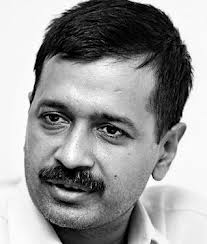Arvind Kejiriwal officially established his political party, India Against Corruption (IAC), on the 2nd of October this year, signifying his entry into the political arena.

Kejiriwal: one man crusader
Mr. Arvind Kejiriwal carries a reputation as a relentless crusader against corruption, and the formation of his own political party is interpreted as a positive step in his campaign. Throughout his journey, he has taken on many powerful politicians in the name of anti-corruption.
He notably brought charges against Mr. Robert Vadra, the son-in-law of Congress leader Sonia Gandhi, and audaciously challenged the opposition leader over the acquisition of land from impoverished farmers. Additionally, he put significant pressure on the law minister by scrutinizing his handling of charitable funds.
These bold actions have painted Kejiriwal as a determined anti-corruption champion. If he can summon the Prime Minister for an open public debate, he raises the question—why can’t he eradicate corruption?
However, establishing a political party isn’t the sole tactic for eradicating corruption; he nonetheless believes it will significantly help him gain public support.
Kejiriwal contends that the ruling Congress party and the opposition Bharatiya Janata Party are both mired in corruption, and he refers to their actions as a collusion to siphon off national resources.
His anti-corruption initiatives stem from a deep-seated disdain for corrupt politicians. Through his previous career as a bureaucrat, he observed various forms of corruption first-hand.
His courageous stand against high-profile politicians has made him a prominent figure in the country. Media outlets frequently portray him as a heroic figure, bolstered by continuous coverage of his endeavors.
Nonetheless, many accused politicians dismiss his new party as merely a strategic maneuver. They refer to his allegations as nothing more than tactics designed to propel him into the political limelight.
Undeterred by intimidation, Kejiriwal remained steadfast even when faced with threats from the Governor of Delhi. Following threats of imprisonment from Mrs. Sheila Dikshit, he vowed to persist in his anti-corruption mission.
Mr. Vadra was just the beginning; Kejiriwal unveiled the questionable connections between Mr. Vadra and the real estate giant DLF, shedding light on how Sonia Gandhi’s son-in-law gained substantial influence in a short period.
In highlighting Vadra’s questionable actions, he took aim at the entire political class. The Congress party defended Vadra, emphasizing he is a private citizen and thus a subject of no governmental scrutiny, yet the same government appears to shield him.
The next target for Kejiriwal was Law Minister Salman Khurshid, whom he questioned over the unauthorized disbursement of charitable funds amounting to several million rupees. Khurshid struggled to justify his position amidst the allegations.
Kejiriwal subsequently turned his sights on Nitin Gadkari, the opposition leader, claiming he had exploited rural farmers by unlawfully seizing their lands. The BJP dismissed Kejiriwal's remarks as pure exaggeration and misleading.
Kejiriwal first gained public attention through his association with Anna Hazare, joining forces in their joint campaign against corruption. Despite numerous setbacks, many attribute his earlier failures to his aspirations of entering politics.
Ultimately, his long-cherished ambition became reality on October 2, 2012, marking the launch of his party with claims that offered little beyond charges of corruption. Still, the citizens who care about India hold out hope that he will deliver more to realize a vision of a corruption-free nation.
While the rationale behind launching his new party remains shrouded in mystery, questions abound about the solutions he might propose.